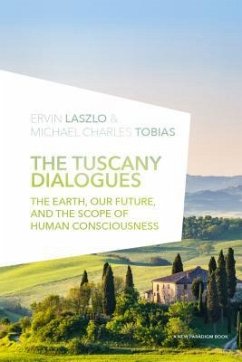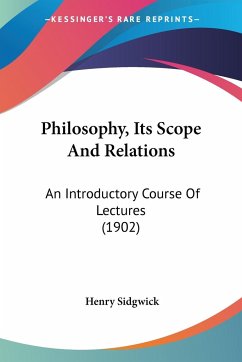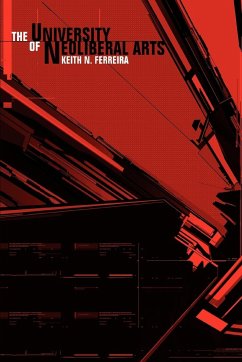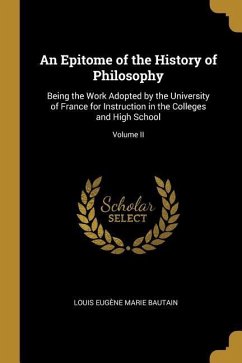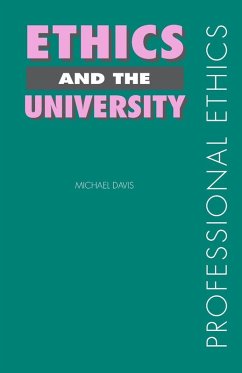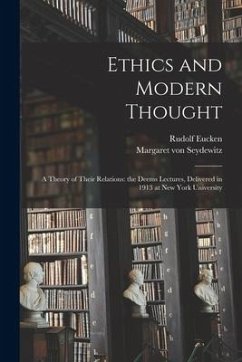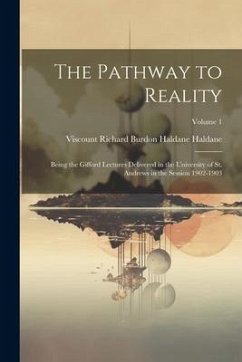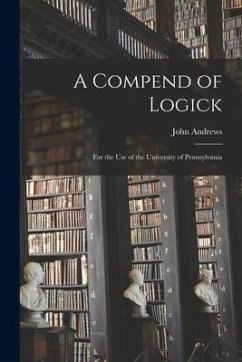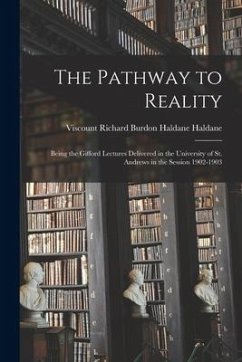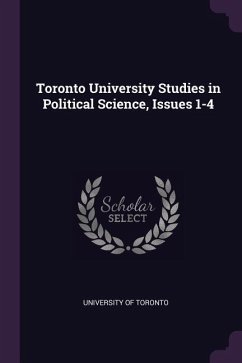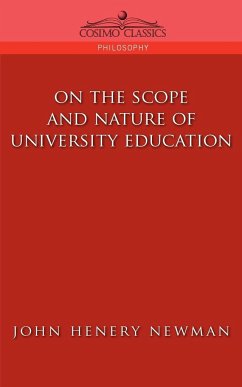
On the Scope of University Education
Versandkostenfrei!
Versandfertig in 1-2 Wochen
34,99 €
inkl. MwSt.

PAYBACK Punkte
17 °P sammeln!
In 1854, Father John Henry Newman, future Cardinal of the Roman Catholic Church, entered the new Catholic University in Dublin as Rector - a post he held for four years. By way of preparation in 1852, Father Newman authored and published On The Scope and Nature of University Education. These eight discourses contained herein are of special interest as a turning point in his long and brilliant career as a leading Catholic theologian. JOHN HENRY CARDINAL NEWMAN (1801-1890) was known as "The Father of The Second Vatican Council" and a - if not the - leading figure in the Church of England. Prior ...
In 1854, Father John Henry Newman, future Cardinal of the Roman Catholic Church, entered the new Catholic University in Dublin as Rector - a post he held for four years. By way of preparation in 1852, Father Newman authored and published On The Scope and Nature of University Education. These eight discourses contained herein are of special interest as a turning point in his long and brilliant career as a leading Catholic theologian. JOHN HENRY CARDINAL NEWMAN (1801-1890) was known as "The Father of The Second Vatican Council" and a - if not the - leading figure in the Church of England. Prior to his conversion to Catholicism in 1845, Cardinal Newman was an outstanding scholar at Oxford possessed of brilliant speaking and writing abilities. His Parochial and Plain Sermons (1834-42) is considered the best sermons in the English language. In A Grammar Of Assent (1870) is his remarkable study on religious knowledge and certainty. Newman was made a Cardinal in 1877.





